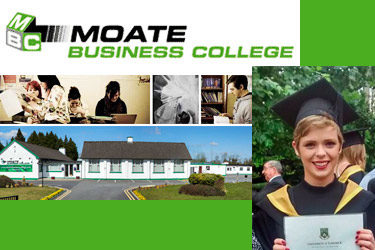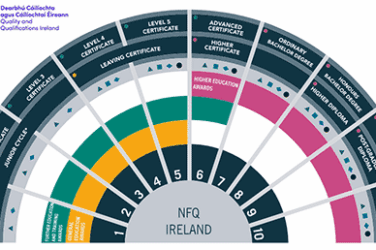Apprenticeships

An apprenticeship is the recognised way people are trained in a craft trade or profession. The main craft trades and professions have been designated by SOLAS and come within the scope of the Statutory Apprenticeship system, which is organised by SOLAS in co-operation with the Department of Education and Skills, employers and unions. An Apprenticeship Council is also in place.
An apprenticeship provides on-the-job training with an employer. It usually alternates between off-the-job training in an education centre and on-the-job training at your employer’s workplace. An apprenticeship generally lasts for 4 years, during which time you will spend 3 different periods in off-the-job training.
Craft apprenticeships
A craft apprenticeship will generally last for 4 years, during which time you will spend 3 different periods in off-the-job training.
Generally, the first off-the-job training phase will take place in an Education and Training Board (ETB)Training Centre while the subsequent off-the-job training phases will take place in an Institute of Technology.
The skills you develop will be assessed through on-the-job competence testing as well as off-the-job modular assessment and examinations and, if you complete these assessments successfully, you will be awarded an Advanced Certificate – craft (level 6 on the National Framework of Qualifications).
Craft apprenticeships include carpentry, plumbing, motor mechanics and electrical apprenticeships.
New apprenticeships in other areas of industry
Apprenticeships introduced from 2016 on lead to an award between Levels 5-10 on the National Framework of Qualifications. Each apprenticeship programme can be for between 2 and 4 years.
There are a number of models of on-the-job and off-the-job training, as well as different models of delivery and different target groups (including people already in employment). Industry-led groups (consortia), which work with education and training providers and other partners, oversee the development and roll-out of new aprenticeships.
New apprenticeships in ICT, finance and hospitality include software development, accounting technician and commis chef.
You can find information about new apprenticeships on apprenticeship.ie.
Rules
To be eligible for an apprenticeship, you must be at least 16 years of age and you are expected to have a minimum of grade D in 5 subjects in the Junior Certificate or equivalent exam. However, higher educational qualifications and other requirements may be required by employers.
If you don’t have these qualifications, you may still register as an apprentice with an employer if you:
Complete an approved preparatory training course followed by an assessment interview.
Are over 18 years of age and have at least 3 years of relevant work experience, in which case you will also be asked to do an assessment interview.
You will be asked to pass a colour-vision test for some apprenticeships.
Rates
Apprenticeship fees
Generally an apprentice does not pay fees. However, apprentices pay a pro-rata registration fee (student contribution) if their off-the-job training takes place within a Higher Education Institute such as an Institute of Technology. The registration fee is generally based on the amount of time the apprentice spends in the Higher Education Institute. You can find information about the pro-rata registration fee on apprenticeship.ie.
Apprentices are not eligible for the student grant.
Apprenticeship wages/allowances
Rates of apprenticeship wages/allowances can vary depending on the type of apprenticeship and the industry you have chosen:
Apprenticeships developed before 2016: While you are training on the job, your employer will pay you a recommended apprenticeship wage. The ETB pay a weekly allowance equivalent to that wage while you are training off the job. In some cases, the ETB will contribute to your travel and accommodation costs.
Apprenticeships developed in 2016 and after: Your employer will pay you for the duration of the apprenticeship. The rate of pay is agreed between you and your employer.
Annual leave: Your statutory holiday entitlements continue to accrue during the off-the-job phases, but must be taken during the on-the-job phases at times agreed with your employer.
How to apply
Craft apprenticeship
If you are interested in taking up an apprenticeship, contact the Apprenticeship Section of your local ETB. details about applying.
New apprenticeships in other areas of industry
Apply to the industry lead for the apprenticeship you are interested in. You can also contact the Apprenticeship Section of your local ETB for information.
View Appreniceship and Pre-Apprenticeship Course Listings on Findacourse.ie
View Apprenticeships Ireland Website
Contains Irish Public Sector Data licensed under a Creative Commons Attribution 4.0 International (CC BY 4.0) licence




